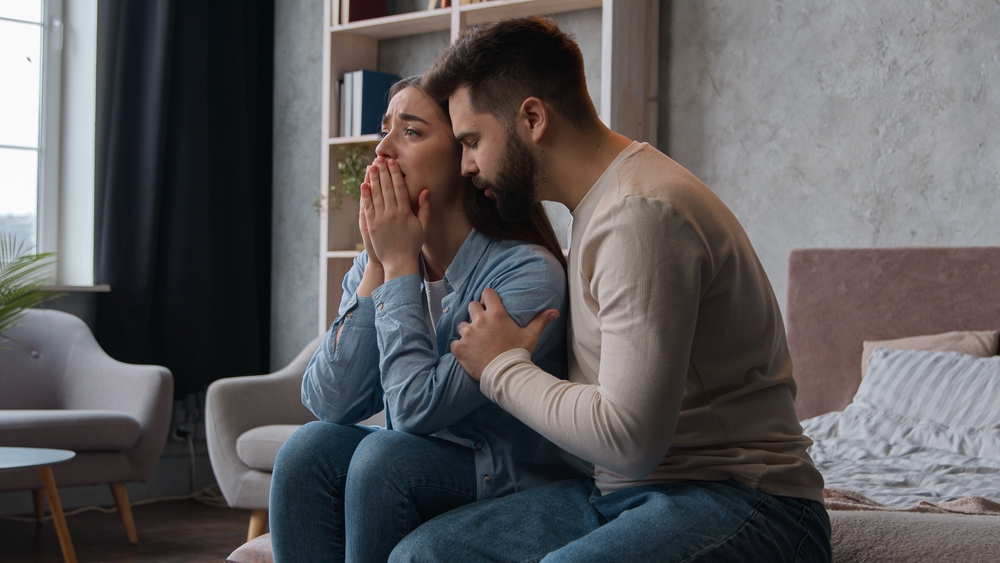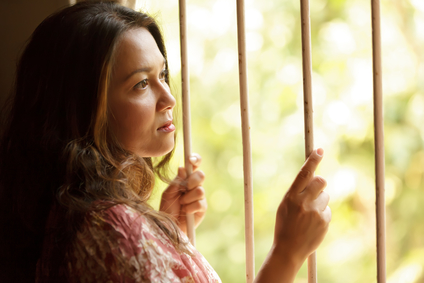When a close relative or family friend dies or when you lose a child, it can make couples grieve together. But just because you and your spouse are both grieving doesn’t mean you will experience that grief the same way or on the same timeline. Understanding what happens when couples grieve together can prevent that grief from hurting your relationship in the future.
Spouses Will Experience Grief Differently
You have no doubt heard there is no one way to experience grief. But that doesn’t stop many people from assuming that their spouse should be experiencing grief in the same way they do. All too often, when couples grieve together, they find themselves comparing their experiences. If one seems to be “okay” while the other is still struggling, it may make them wonder what is wrong with one another, or themselves.
Get help dealing with grief.
Talk to a couples’ counselor today to help couples grieving together.
The way you experience grief is very personal. A new loss can interact with your personal experiences, history, and prior losses. Your individual coping strategies and personality traits will affect your reactions to grief, as well as the timeline for healing. In addition, each spouse’s relationship to the person you have lost will be different. Even if the loss is a child (one of the hardest losses a person can endure), your relationship with that child is not the same as your spouse’s. You each undoubtedly loved the child, but not in the same way. Because you and your spouse do not have the same background, history, or relationship with the person you have lost, you will not experience grief in the same way.
That means comparing yourself to your spouse will only cause more harm. You may fault your spouse for the way they are experiencing grief, or you may compound your own grief by holding your experience against yourself. That will only cause more grief and possibly increase conflict between you and your spouse when you are both emotionally vulnerable.
Couples Grieving Together Should Focus on Connection and Understanding
Rather than measuring your grief against your spouse, focus on the healthy ways couples grieve together, through connecting with one another and providing one another understanding and support. This means talking with one another about your feelings and the expressions of your grief. Expressing curiosity about one another’s grief rather than judgment can encourage your spouse to communicate their feelings and needs, which in turn will help you support them and receive support in return.
One way to do this is to do regular grief check-ins – moments where each spouse can say how they are feeling and experiencing their grief. You should try to communicate your grief experience in general, but also how you are feeling or thinking in the moment. In the days immediately following a loss, this might be a daily occurrence. Acute grief can involve many ups and downs, including sometimes erratic emotional shifts. Expressing those shifts can make them easier to bear and may help you identify grief triggers through reflection and communication.
As time goes on, your grief will become less acute, and your check-ins may become less common. However, they are still important. Grief can sometimes surprise you weeks or even months after you experience a loss. It can reoccur around the lost loved one’s birthday, holidays, or other special events. But other triggers can be less obvious. Creating a relationship dynamic where both spouses are free to ask how the other is doing, and respond honestly, will help you both process these spikes in grief, and prevent them from stopping your healing process.
Supporting One Another Through Mutual Self-Care
Self-care is an important part of managing grief, alone or with your spouse. But when couples grieve together, indulging in the desire to self-sooth can push couples apart. While it is appropriate and healthy to take time alone while grieving, it can sometimes cause you to push your spouse away in the process. Instead, talk to your spouse about self-care activities you can do together like taking a walk, participating in religious services, or even having sex. These activities can allow couples to grieve together and draw you and your spouse closer together in the process. In addition, you can support your spouse by giving them time and space for individual self-care when they experience grief spikes or aggravated mental health symptoms.
Processing Grief by Doing Something Together
Shared action is a good way for couples to grieve together. Bereavement can make people want to do something to honor the one they have lost. This could take the form of a memorial, volunteer opportunity, or charitable contribution. Doing something together to remember your loved one can help couples strengthen their relationship and express their grief in healthy and productive ways.
If it feels like your grief isn’t getting any better, or if your relationship is struggling because of your grief, you can also work with a couples’ therapist. A psychotherapist can work with couples grieving together to develop healthy coping skills and provide a safe space for you and your partner to express your feelings and process your grief, without losing your relationship in the process.
David Stanislaw is a psychotherapist with over 30 years of experience. He helps individuals and couples with bereavement and other psychiatric issues. Contact David Stanislaw to get help today.


 Common Treatments for Depression
Common Treatments for Depression Are Childhood Family Patterns Affecting Your Marriage?
Are Childhood Family Patterns Affecting Your Marriage? 7 Ways Therapy Can Make You a Better Parent
7 Ways Therapy Can Make You a Better Parent